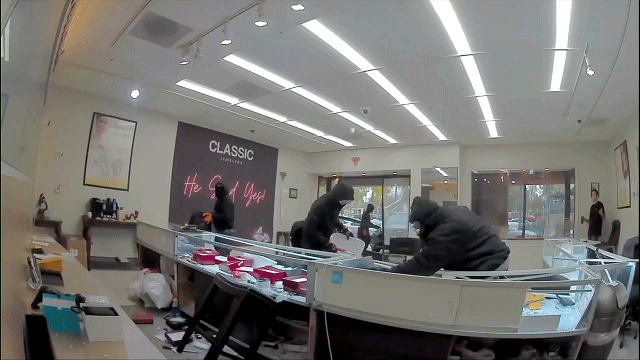Saturday marks 25 years since the start of one of the deadliest race riots in American history. The violence erupted in South Los Angeles after a jury acquitted four white police officers in the beating of black motorist Rodney King. A timeline of events surrounding the unrest:
— March 3, 1991 — Rodney King is pulled over by California Highway Patrol officers for speeding on a Los Angeles freeway. King, who later admitted he tried to elude authorities because he had been drinking and was on probation for a robbery conviction, pulled off the freeway and eventually stopped his car in front of a San Fernando Valley apartment building. At that point, Los Angeles police officers took charge of the traffic stop. George Holliday, who lived in the apartment building and was awakened by the noise, came out to videotape the scene, filming four white officers beating and kicking the black motorist dozens of times, including after he was on the ground. After Holliday turns over the video to a local TV station, it quickly spreads and creates international outrage.
— March 15, 1991 — A Los Angeles County grand jury indictment is unsealed charging the four officers seen in the video with felony assault and other offenses.
— March 21, 1991 — The four — Sgt. Stacey Koon and officers Theodore Briseno, Laurence Powell and Timothy Wind — plead not guilty.
— Nov. 26, 1991 — The officers' trial is moved to Simi Valley, California, a nearly all-white suburb 30 miles north of downtown Los Angeles that is home to a large number of LA police officers after a court determines the case's massive publicity and the highly charged political environment it created might not allow them to receive a fair trial in their own city.
— April 29, 1992 — After seven days of deliberations, jurors acquit the officers of almost all charges, deadlocking on one assault count involving Powell.
— April 29, 1992 — Soon after the verdict is read, an angry Los Angeles Mayor Tom Bradley denounces it as "senseless," declaring, "The jury's verdict will never blind the world to what we saw on the videotape."
— April 29, 1992 — As word of the verdict spreads through predominantly black South Los Angeles, residents explode in anger, burning and looting stores by the hundreds and attacking non-black passers-by. Gov. Pete Wilson complies with Bradley's request to send in the National Guard.
— May 1, 1992 — On the third day of the riot, King makes an emotional plea for peace, appearing before TV cameras to ask in a trembling voice, "Can we all get along?"
— May 3, 1993 — A citywide curfew enacted at the height of the violence is lifted.
— June 28, 1992 — Police Chief Daryl Gates, under intense public pressure since the King beating to resign, retires from the LAPD after 43 years, the last 14 as chief.
— Aug. 5, 1992 — Three months after their acquittals in criminal court, LAPD Sgt. Stacey Koon and Officers Laurence Powell, Theodore Briseno and Timothy Wind are indicted on federal charges of violating King's civil rights.
— Dec. 7, 1992 — Damian "Football" Williams, the teenager seen on video smashing a brick into the head of white trucker Reginald Denny at the start of the riots, is convicted of assault and other charges and sentenced to 10 years in prison.
— April 17, 1993 — Koon and Powell are convicted of violating King's civil rights. Briseno and Wind are acquitted.
— Aug 3, 1994 — The city of Los Angeles agrees to pay King $3.8 million for medical bills, pain and suffering sustained as a result of the beating. The settlement resolves a long legal battle during which the city and King sued each other.
— Aug. 4, 1994 — Powell and Koon are sentenced to 2 1/2 years in prison.
— April 16, 2010 — Gates dies of cancer at age 83.
— June 17, 2012 — Just weeks after the 20th anniversary of the riots and soon after releasing his memoir "The Riot Within: My Journey from Rebellion to Redemption," King drowns in his backyard swimming pool at age 47.








































